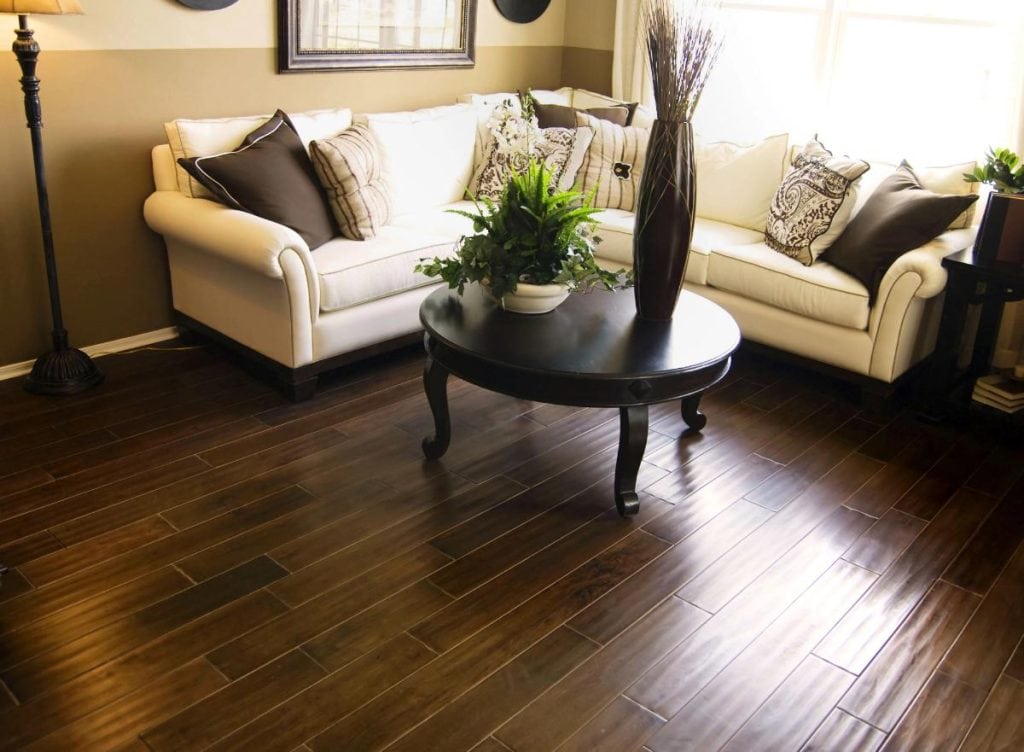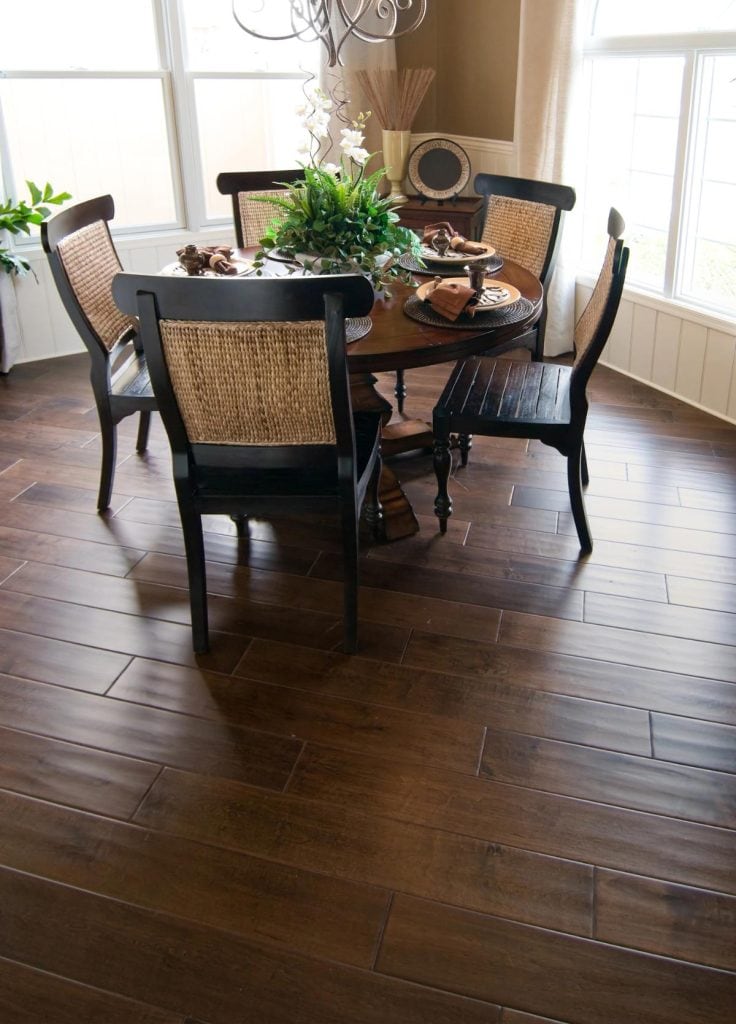Hardwood floors aren’t cheap, so taking care of them once they’re installed is important. You want your investment to look good and last for years to come. While most types are durable and long-lasting, you have to protect your hardwood floors and maintain them regularly to keep their appeal.
We’ve put together some top tips to help you maintain your hardwood floors to keep them scratch-free with beautiful color.

1. Establish a regular cleaning routine for your hardwood floors
Firstly, make sure you’ve got a regular cleaning routine for your hardwood floors. This is crucial for maintaining the overall look and durability of your floors, and it’s fairly simple to do. All you really need to do is sweep or vacuum them on a regular basis to remove all of the dirt and debris. If you’re fairly busy, then you can do this once or twice every week depending on how much foot traffic your home gets.
Ideally, you should have some kind of vacuum that is designed specifically for hardwood floors. Alternatively, you might want to use a soft-bristled broom to make sure you’re not scratching up the wood. If you haven’t cleaned your floors like this for some time then you can expect a lot of dust and grime. However, build a habit of regularly cleaning, you’ll notice that it gets easier as time goes on.
2. Use the right cleaning products for your floors
Hardwood floors don’t require special cleaning chemicals, but people often make the mistake of using harsh cleaners and abrasive products when cleaning floors, which can end up damaging the wood finish. In general, you want to avoid anything that is acidic, such as cleaners that use vinegar. Oil and wax-based cleaners are also problematic, as they can make your hardwood floors appear dull or difficult to clean. Steam cleaning can also be harsh on hardwood floors due to the moisture they produce.
The best way to clean your hardwood floors is to use a pH-neutral hardwood floor cleaner that has been specifically designed for use on hardwood. Make sure you dry the floor immediately to prevent any water from seeping into the wood, and pay close attention to areas that may be prone to moisture.
If you’ve been using these harsh chemicals and have noticed that your floors have become damaged over time, it may be a good idea to look for a hardwood floor restoration service to help you out. If it’s not too late and the damage isn’t too serious, then you may be able to recover your hardwood floors with a bit of work.
3. Be wary of any potential water damage
You’ll also want to be wary of any potential water damage that could occur on your hardwood floors. This is particularly troublesome around areas with high amounts of humidity, or areas where spills are common.
For example, if you have hardwood floors at the entrance of your home, then it might be common for water to affect the floors when people or pets return indoors during heavy rain. Leaky appliances such as dishwashers and refrigerators can also lead to water damage on your hardwood floors, especially if you don’t fix those problems as soon as possible.

4. Protect your hardwood floors from sunlight
Sunlight can damage hardwood floors due to the ultraviolet radiation in sunlight. This interacts with the wood in your floors and can cause fading, discoloration, and even accelerate the natural aging process of the wood. This leads to dull and damaged floors if they’re exposed to the sun for a long time.
Take careful note of areas in your home that could be exposed to sunlight regularly. If possible, try to keep the sunlight out by using window coverings, such as curtains and blinds, to block sunlight from entering the room during the brightest hours of each day. This will significantly reduce the UV radiation that affects your hardwood floors.
You may also want to consider a UV-protective film if you don’t want to close your curtains and blinds for long periods of time. This will allow the natural light to enter your home while blocking any harmful UV rays. Not only does this protect your hardwood floors, but it can also protect your furniture and even your family from UV ray exposure. These films are transparent and easy to install, but you may want to consult an expert just in case.
